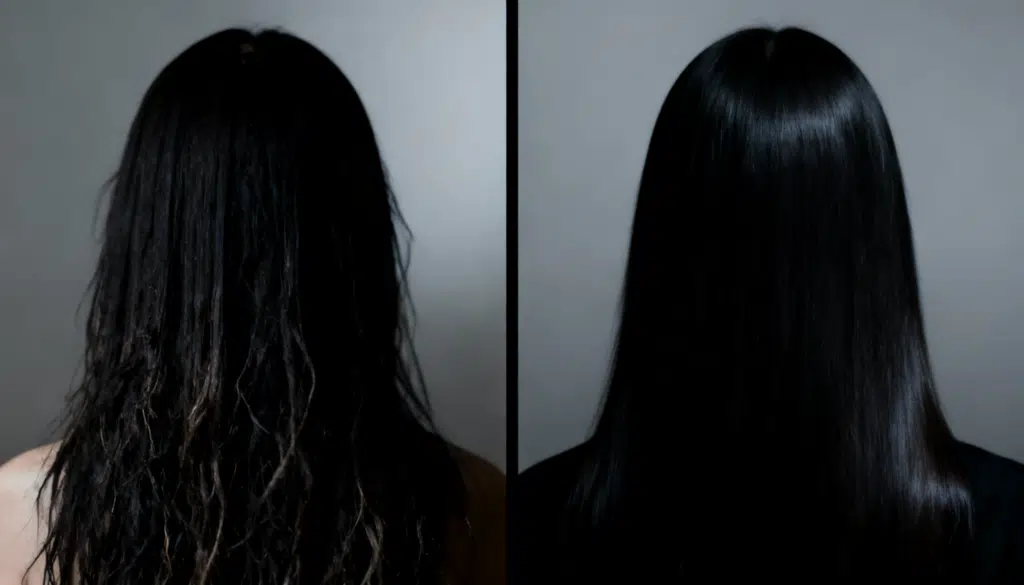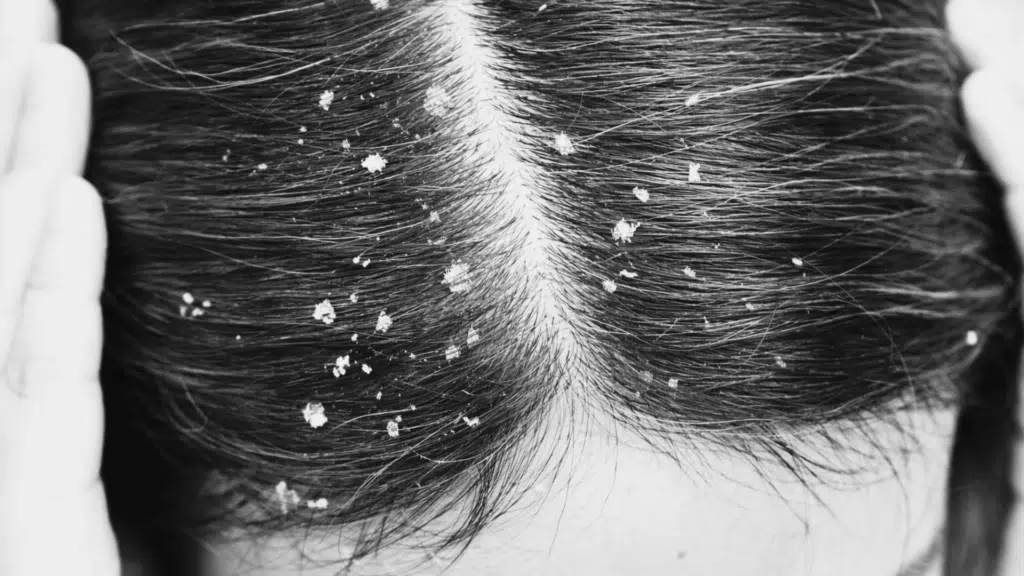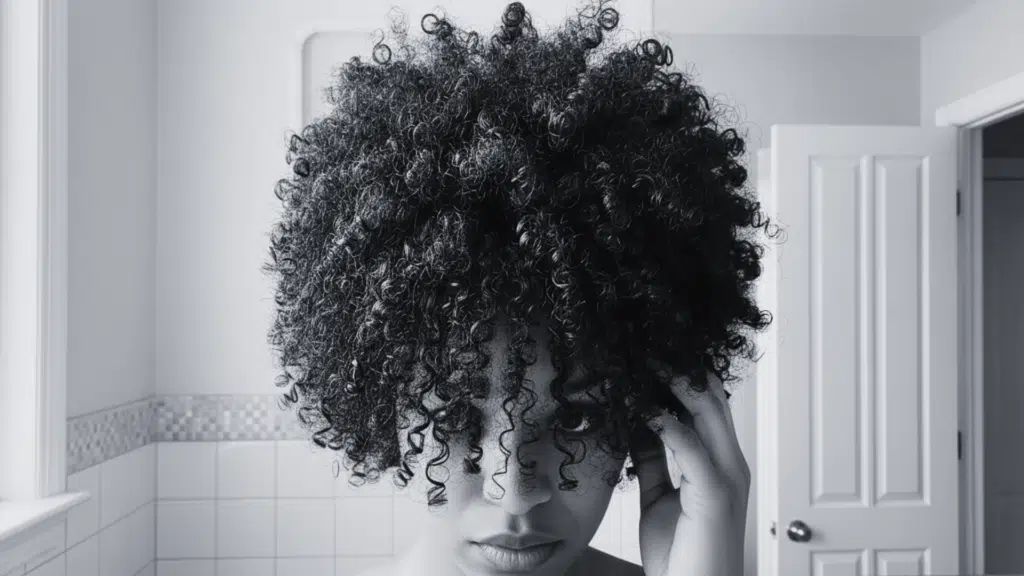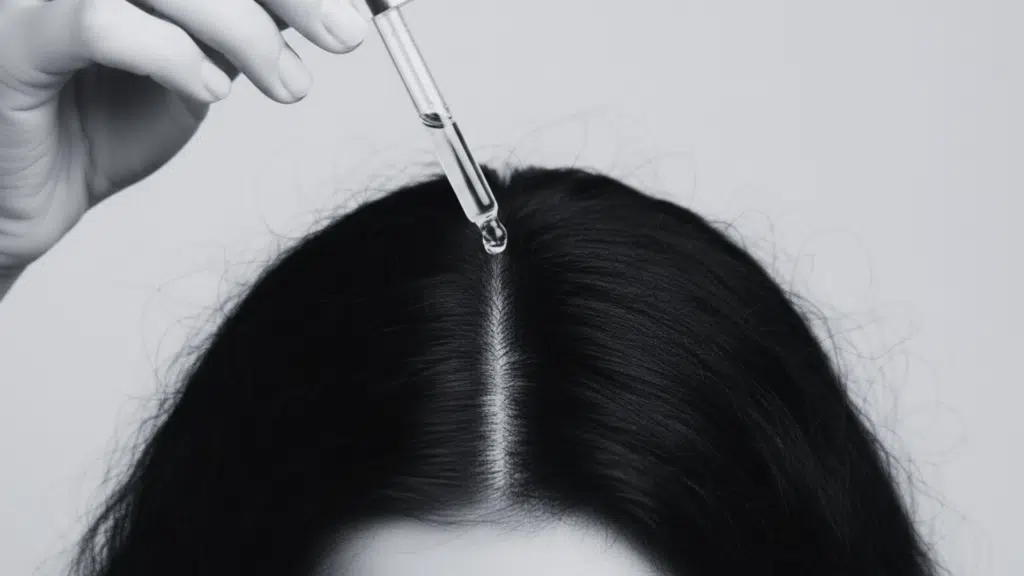Are you washing your hair too much or not enough? Some wash daily and wonder if they’re damaging their hair, while others stretch it to a week and deal with greasy roots.
There’s no one-size-fits-all answer when it comes to how often should you wash your hair.
If you’re wondering should I wash my hair everyday. I’m going to show you the key factors that determine your perfect washing schedule.
You’ll learn how to read your hair’s signals and create a routine that keeps your locks healthy and fresh.
How Often Should You Wash Your Hair?
How often you should wash your hair depends on your hair type, scalp condition, lifestyle, and even the season.
Fine or oily hair may need washing every 1–2 days, while thick, curly, or dry hair can go longer.
Active lifestyles, frequent styling, or humid climates might require more frequent washes.
Overwashing can strip natural oils, while under-washing can cause buildup. Aim for a routine that keeps your scalp clean and comfortable while maintaining your hair’s natural balance and health.
Answering – Should I Wash My Hair Everyday
Now that you know daily washing isn’t right for everyone, let’s look at what actually determines your ideal schedule.
Several key factors work together to influence how often your hair needs cleaning, and understanding these will help you create the perfect routine.
Your Hair Texture Matters

Fine Hair
If you have fine hair, you probably notice it gets greasy faster. Fine strands can’t hold much oil before looking flat and lifeless. Fine hair usually needs washing every day or every other day.
The oil from your scalp travels down thin strands quickly, making them look heavy.
Medium Hair
Medium-textured hair sits right in the middle. You can usually go 2-3 days between washes.
This hair type holds its shape well and doesn’t get oily as fast as fine hair. Most people with medium hair find this sweet spot works perfectly.
Curly and Coarse Hair
Curly hair is different. The curves and bends make it harder for scalp oil to travel down each strand.If you have coarse, curly hair, you might only need to wash once or twice a week.
Over-washing curly hair can strip away natural oils that keep curls healthy and defined.
Chemically Treated Hair
Dyed, bleached, or chemically straightened hair needs special care. These treatments make your hair more porous and fragile. Washing treated hair less often – maybe 2-3 times per week, maximum.
The chemicals can make your hair dry, so you want to preserve whatever natural oils you can.
Understanding Your Scalp Condition
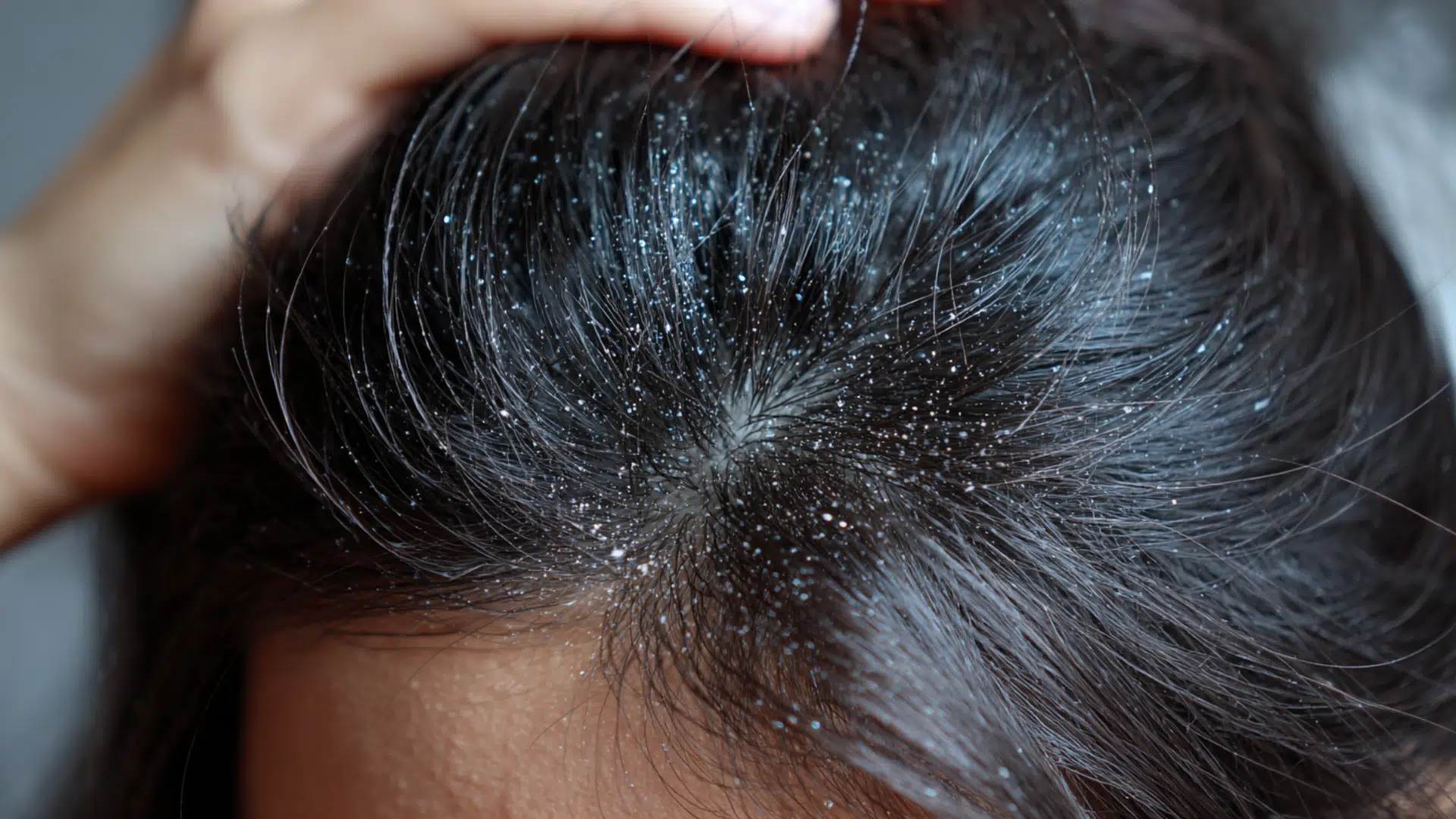
Oily Scalp
Some people produce more oil than others. If your scalp gets greasy within a day of washing, you have an oily scalp. You might need to wash daily or every other day.
I know it seems like washing more makes your scalp produce more oil, but that’s actually a myth.
Dry Scalp
A dry scalp produces less natural oil. You might notice flakes or feel tightness after washing. People with dry scalps can often go 3-4 days between washes.
Too much washing will only make the dryness worse.
Sensitive Scalp
If your scalp gets irritated easily, you need a gentle approach. Washing too often with harsh products can cause redness and discomfort.
Limiting washes to 2-3 times per week and using mild, sulfate-free shampoos.
Dandruff-Prone Scalp
Dandruff is tricky. Some people think they should wash less to avoid irritation. But dandruff often comes from a buildup of oil and dead skin cells.
Regular washing with anti-dandruff shampoo usually helps. You might need to wash every other day until the flakes clear up.
Activity Level and Sweat

Regular Exercise
If you work out regularly, you probably sweat more than someone with a desk job. After gym sessions, hair feels sticky from sweat and product buildup.
You don’t always need full shampoo – sometimes water rinses work for daily exercisers with dry hair.
Swimming
Pool chlorine strips natural oils and makes hair brittle. Rinse immediately after swimming and use a gentle shampoo occasionally.
Ocean saltwater also dries hair, but gives some people a nice texture. Quick rinses remove salt without full washing every time.
Heavy Sweating
Some people naturally sweat more due to their jobs or the climate. Excess sweat clogs follicles and creates odors. If you’re a heavy sweater, you’ll likely need more frequent washing.
Your hair and scalp will signal when it’s time for a proper cleanse.
Environmental Factors
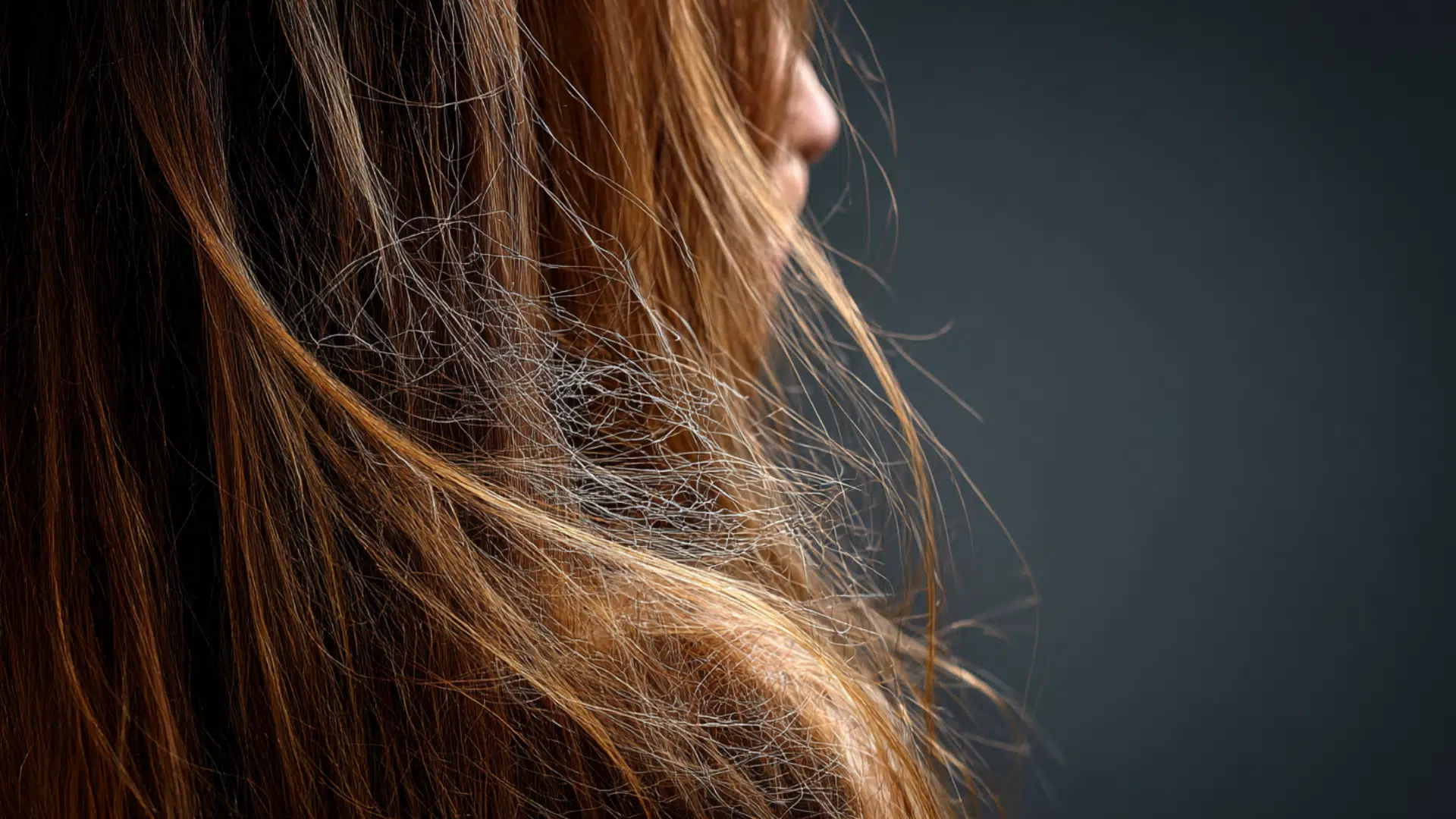
Climate Matters
Hot, humid weather increases scalp oil production, making hair greasy faster. Wash daily during the summer months.
Cold, dry winter air has opposite effects – less oil means longer intervals between washes. Seasonal adjustments help maintain healthy hair year-round.
Air Pollution
City dust, smog, and pollutants stick to hair throughout the day. Living in polluted areas requires more frequent washing, perhaps every other day instead of twice weekly.
Pollution also irritates sensitive scalps, making gentle daily cleansing necessary for some people.
Seasonal Allergies
Pollen settles in hair during allergy season. To remove these particles, especially after outdoor activities. Washing before bed prevents transferring allergens to pillowcases.
Some find that allergens cause scalp itching, requiring gentle daily rinses for relief.
How do Product Use & Styling Habits Affect Your Hair Wash Frequency?
The products you use and how you style your hair change how often you need to wash it. Different styling routines require different washing schedules.
Does using styling products affect how often I should wash my hair?
Yes, it absolutely does. If you use lots of gels, mousses, or styling creams daily, your hair collects more residue. These products layer on top of each other and mix with natural oils. Heavy product users need to wash more often to keep their hair clean and bouncy.
Can I rely on dry shampoo instead of regular washing?
Not really. Dry shampoo is great for extending the time between washes, but don’t rely on it too much. It absorbs oil but doesn’t actually clean your scalp. Using dry shampoo for several days straight creates buildup that regular shampoo needs to remove.
How does frequent heat styling affect my washing routine?
Blow-dryers, flat irons, and curling tools damage hair by removing moisture. Heat-styled hair becomes dry and brittle over time. If you use hot tools daily, consider washing less often to preserve whatever natural oils remain. Your hair needs those oils for protection and shine.
Should I wash heat-damaged hair differently?
Absolutely. Heat-damaged hair breaks easily and looks frizzy. Washing too often strips away protective oils that damaged hair desperately needs. Washing heat-styled hair only 2-3 times per week, maximum. Focus more on deep conditioning treatments to repair and protect your strands from further damage.
Myths vs. Reality on Hair Washing
Let’s clear up some common hair-washing myths that might be affecting your routine. I’ll show you what science actually says versus what people believe.
| Myth | Reality |
|---|---|
Daily washing damages hair | Washing daily with a gentle shampoo is not inherently bad. Hair type matters. |
| Washing every day causes hair loss | No evidence supports hair loss from frequent washing; it keeps the scalp healthy. |
| Hair will “clean itself” if not washed | Hair cannot self-clean; buildup occurs without washing. |
| Shampooing strips all natural oils | Washing may reduce some oils, but routine removes excess oil- a balance is key. |
| Only oily hair needs a daily wash | People with active lifestyles or oily scalps may benefit from frequent washing. |
| Good hair needs minimal washing | Studies show frequent washing improves hair/scalp condition for many people. |
| Daily washing always causes dryness | Overwashing can dry out some hair, especially with harsh products or for dry types. |
To Sum Up
Finding the answer to the questions of how often you should wash your hair or how often you should wash your hair.
Your perfect hair washing schedule isn’t about following rigid rules – it’s about understanding your unique needs.
Start with the guidelines I’ve shared, but pay attention to how your hair responds. Does it feel greasy after one day or can you stretch it to three? Trust what you see and feel.
Remember, your routine might change with seasons, stress, or life changes. Stay flexible and adjust as needed.







